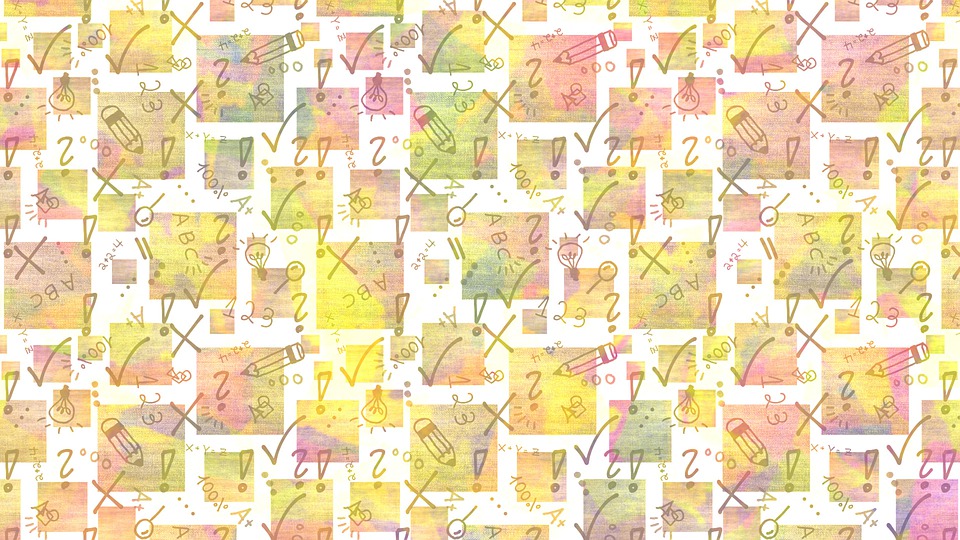¿Estamos más preocupados por no equivocarnos que por aprender?
Contenido principal del artículo
Resumen
El siguiente trabajo está vinculado al grupo de investigación Currículo, Espacio, Movimiento (CEM/CNPq/Univates), específicamente al proyecto de investigación: La clase como creación: interfaces entre docencia, enseñar y aprender, cuya finalidad es investigar la clase en relación con la docencia y con los procesos de enseñanza y aprendizaje, tomando esta como práctica de creación. Está investigación está también, en armonía con los estudios del programa Post-Graduación en Enseñanza, de la Universidade do Vale do Taquari – Univates (Lajeado/RS/Brasil). Este escrito toma como punto de partida el siguiente interrogante: ¿Será que estamos más preocupados con no errar que con aprender? A partir de esta pregunta se busca pensar con la ayuda de la pesquisa-acontecimiento según Sandra Corazza, en el sentido de tensionar algunas imágenes que hacen parte de nuestra propia praxis. De esa forma se toma el error como posibilidad de errancia, de líneas que se desvían del camino preestablecido por medio de enigmas, de problemas que desacomodan; otras imágenes pueden ser creadas para pensar la noción de error. Para tal fin, se traslada la discusión clásica entorno al error en la enseñanza- aprendizaje, para ser indicador de creación de otros problemas, pensar de otros modos, del aprendizaje a través de las fuerzas de los signos según Gilles Deleuze. Finalmente, consideramos que la comprensión del error, así como nuestra preocupación por no errar, más que con aprender, podría tener incidencia en el cambio de la concepción del error en el cotidiano escolar, en las prácticas filosóficas y en las concepciones de infancia.
Detalles del artículo
Sección

Esta obra está bajo una licencia internacional Creative Commons Atribución 4.0.
Se solicita a los autores que diligencien el documento de cesión de derechos de autor sobre el artículo, para que sea posible su edición, publicación y distribución en cualquier medio y modalidad: medios electrónicos, CD ROM, impresos o cualquier otra forma, con fines exclusivamente científicos, educativos y culturales
- La obra pertenece a UNIMINUTO.
- Dada la naturaleza de UNIMINUTO como Institución de Educación Superior, con un modelo universitario innovador para ofrecer Educación de alta calidad, de fácil acceso, integral y flexible; para formar profesionales altamente competentes, éticamente responsables y líderes de procesos de transformación social, EL CEDENTE ha decidido ceder los derechos patrimoniales de su OBRA, que adelante se detalla para que sea explotado por ésta
- El querer de EL CEDENTE es ceder a título gratuito los derechos patrimoniales de la OBRA a UNIMINUTO con fines académicos.
Cómo citar
Referencias
S. M. (2004). Pesquisar o currículo como acontecimento: em V exemplos. Reunião anual da associação nacional de pós-graduação e pesquisa em educação, 27,1-16. https://goo.gl/N2eFL7
Corazza, S. M. (2012). O drama do currículo: pesquisa e vitalismo de criação. Trabalho apresentado na IX ANPED SUL. https://goo.gl/KY2xNe
Corazza, S. M. (20123). O que se transcria em educação? Porto Alegre: UFRGS.
Corazza, S. M. (2016). Pesquisa empírica-transcendental da diferença: arquivo, escrileitura e tradução de dados. In: Kohan, W., Lopes, S.W., Martins, F. F. R. (Orgs.) O ato de educar em uma língua ainda por ser escrita (327-339). Rio de Janeiro: NEFI.
Deleuze, G. (1988). Diferença e repetição. Tradução: Luiz Orlandi, Roberto Machado. Rio de Janeiro. Graal.
Deleuze, G., & Guattari, F. (1997) Mil platôs: capitalismo e esquizofrenia (Vol. 5). Trad. Peter Pál pelbart e Janice Caiafa. Rio de janeiro: Editora 34.
Deleuze, G. (2003). Proust e os Signos (2ª ed.). Rio de Janeiro: Forense Universitária.
Esteban, M. T. (2001). Avaliar: ato tecido pelas imprecisões do cotidiano. In: Garcia, R. L.
(Org.). Novos olhares sobre a alfabetização (175-192). São Paulo: Cortez.
Fernandes, D. (2013). Avaliação em educação: Uma discussão de algumas questões críticas e desafios a enfrentar nos próximos anos. Revista Ensaio: Avaliação e Políticas Públicas em Educação, 21 (78), 11-34. https://bit.ly/2EyWaZa
Fernandes, D. (2014). Avaliações externas e melhoria das aprendizagens dos alunos: Questões críticas de uma relação (im) possível. In: Ferreira, A. (Org). Avaliação Externa e Qualidade das Aprendizagens (21-50). Lisboa: Ferreira. https://goo.gl/5kgm1c
Gelamo, R. P. (2008). Pensar sem pressupostos: condição para problematizar o ensino da filosofia. Pro-Posições. São Paulo, 19, 3 (57), 161-174. https://goo.gl/nH1hyk
Monteiro, C., Carvalho, C., & Martins, M. N. (2015). O feedback em situações de aprendizagem mediadas por recursos tecnológicos. In: Carvalho, C.; Conboy, J. (Orgs.). Feedback, identidade, trajetórias escolares: Dinâmicas e consequências (377- 416). Lisboa: Instituto de Educação da Universidade de Lisboa. https://goo.gl/mgbpuA
Sordi, M. R. L., & Ludke, M. (2009). Da avaliação da aprendizagem à avaliação institucional: aprendizagens necessárias. Avaliação: Revista da Avaliação da Educação Superior (Campinas). 14(2), 253-266. https://goo.gl/1KckyY
Veloso, L., Abrantes, P., & Craveiro, D. (2011). A avaliação externa das escolas como processo social. Educação, Sociedade e Culturas. Porto, 33, 69-88. https://goo.gl/6dEisD





